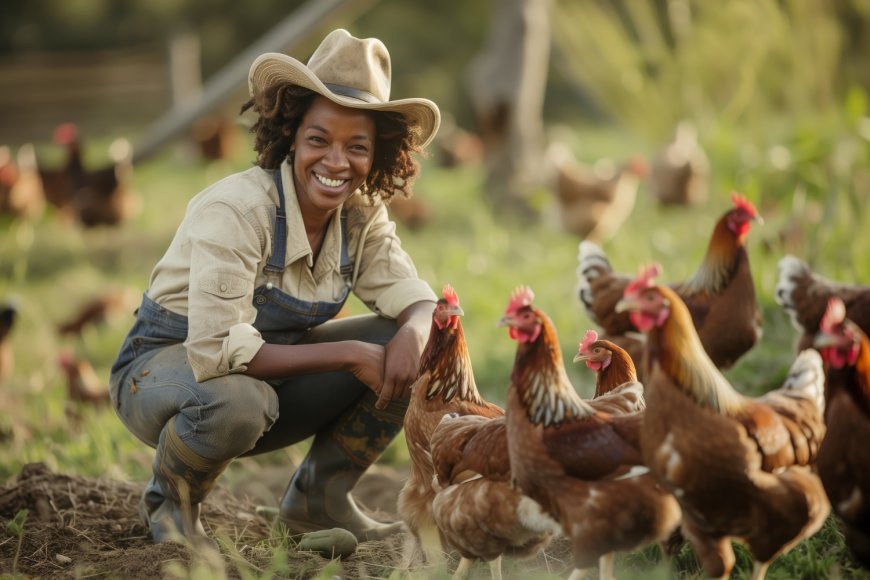Rise in Urban Poultry Farming Raises Animal Welfare Concerns

There has been a relatively rapid increase in urban poultry farming in the recent past. People are now resorting to backyard coops and small scale poultry farming due to a need to get fresh eggs, food security and practising sustainable standards. Nonetheless, this rising trend has raised some critical concerns over the welfare of animals especially poultry thus; entailing experts and animal lovers into understanding the difficulties and obligations of rearing poultry within the compound of such complexes.
The Urban Poultry Boom: What’s Driving It?
The rise of urban poultry farming has been fueled by a variety of factors:
1. Interest in Local and Organic Food: Based on the growing awareness of the public to health and origin of foods, this goal of producing homegrown, organic eggs has become more popular. Residents get closer control of what they eat and are not dependent on commercial products which can have a much higher carbon footprint.
2. Desire for Sustainable Living: Being sustainable is important for a lot of people living in cities. Urban poultry farming is considered as going back to the basics in terms of sustainability, a way of combating food miles, getting rid of waste by feeding the chickens scraps.
3. Community and Education: The idea of keeping chickens is good for the children as it offer chances of learning to families and helps neighborhoods gain a sense of togetherness among people of similar values. This largely symbolises the desire of people to educate their children about the food life cycle and the role of stewardship to animals.
The Challenges of Urban Poultry Farming
As attractive as these may sound, there are several risks/reasons why we can never overlook some of the responsibilities that come with rearing poultry right in the city. There are so many people who use these backyards to rear chickens in urban areas hence people have great concern of these animals.
1. Space Constraints: Chickens need enough area to get from one place to another and to be capable of expressing their behaviours, for example, searching for food or dust bathing. When the study was carried out in densely populated areas such as the densely populated city areas, the space available may be limited and this puts pressure on the birds and they may go for the same space. Lack of adequate space degrades the life of these birds, and it leads to health complications of the birds.
2. Noise and Smell: Chickens are not silent creatures. Roosters for instance make a lot of noise and this interferes with the quiet nature of many neighborhoods. Furthermore, there are odors associated with the management of a coop and where this is not well managed, the situation results in unhygienic conditions that are both undesirable to the birds and other people living nearby.
3. Disease Management: It should be also noted that the health of poultry depends on the conditions of the urban environment where the birds are placed. Such conditions as the avian flu may be transmitted easily in poultry farming if good standards of hygiene and appropriate veterinary practices are not observed. In addition, animals that are confined with other animals or in an area with inadequate air circulation are likely to develop respiratory ailments, and parasites.
4. Predator Risks: It is crucial to note that raccoons, foxes and even dogs or cats that may be wandering in your compound are the biggest menace to your backyard chickens. This means that coop construction has to be predator proof, something that most inexperienced poultry farmers fail to consider.
5. Legal Regulations: The study also reveals that the acceptance of poultry farming is not the same in all the cities that were featured in the research. Chickens are kept in urban areas and farmers are subjected to the code of laws of their cities, which may include the ban on the number of bird to be kept, size of the coop and the level of noise allowed. Noncompliance of these rules results in penalty or an order to take away the birds.
Animal Welfare Concerns in Urban Poultry Farming
The surge in urban poultry farming has given rise to several welfare concerns:
1. Neglect and Abandonment: This may be because after sometime the next big thing in their compound becomes rearing of chickens may be they may be busy, or may not afford to spend much time or money on their birds. This has resulted to cases of lack of proper care for the chickens or complete abandonment of the chicken.
2. Improper Nutrition: Any animal or poultry, including chickens, need to feed on quality and five sets in a proper proportion. Some of the urban farmers lack information regarding the diet in them birds, and all they feed them is leftovers from meals prepared in the house. This can lead to stunted and sickly birds as some of the consequences that can be produced by this problem.
3. Healthcare and Veterinary Services: Treatment of diseases affecting poultry is still wanting in many urban centers. The urban farmers may not be able to call for a vet or treat their own illnesses let alone bringing additional suffering to the birds.
How to Be a Responsible Urban Poultry Farmer
If you are considering joining the urban poultry farming movement, here are some best practices to ensure the welfare of your birds:
1. Educate Yourself: Before you get the chickens, find out what they need in terms of shelter, feed and health. There are times that knowledge alone can help you create a safe environment for your flock and keep them healthy.
2. Provide Adequate Space: It is important to ensure that the size of your coop and the run that you Put for your chicken is spacious enough for movement. The more space they shall have the happier and healthier they will become. A good guideline is to offer at least 10 source foot per bird as the outside run location if offered.
3. Ensure Clean and Safe Housing: Your coop should be predator proofed airy and easy to clean. Make sure the construction is strong never to allow the predator to enter and ensure it is clean for the birds to avoid diseases.
4. Balanced Nutrition: Give your chickens the right feeds to enable them meet their dietary requirements. Using commercial poultry feed as the base and kitchen leftovers as occasional novelty, not a staple.
5. Plan for Veterinary Care: Determine and find a vet who caters to poultry. Always keep your chickens safe from any potential danger and also remember basic first aid when your chickens get sick.
6. Follow Local Regulations: Find out whether you are allowed to have chickens in your city. If necessary register your flock and ensure that your setup is legal according to your country’s law.
Conclusion
Urban poultry farming can be a rewarding and sustainable practice if done responsibly. However, it comes with significant responsibilities, and ensuring the welfare of your chickens should be a top priority. By educating yourself and providing proper care, you can enjoy the benefits of fresh, homegrown eggs while maintaining a humane and ethical approach to animal husbandry.
Urban farming is a growing trend, but with it comes the duty to treat animals ethically and with respect. If you’re committed to the welfare of your flock, you’ll not only contribute to a mo
re sustainable lifestyle but also set an example for others in your community.







